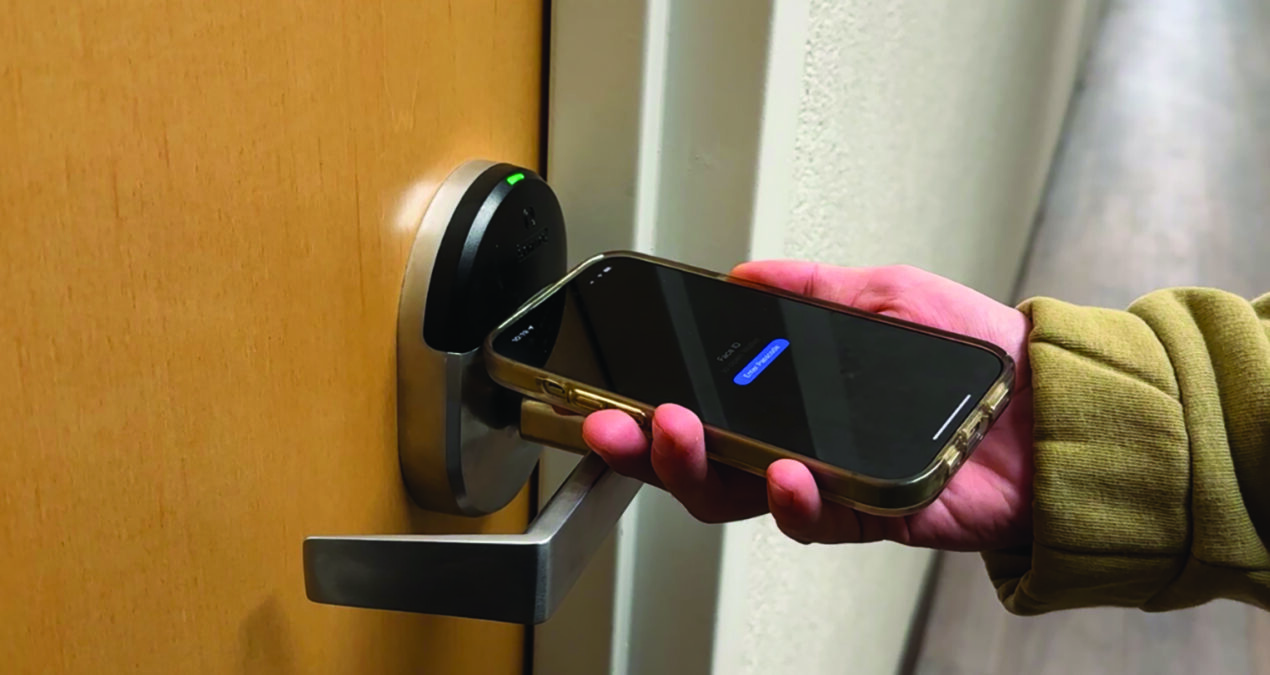Donald Keough, News Editor–
For the first time at Denison, students will be able to use their phone as their IDs next semester, getting rid of the need to have a physical card.
Switching to a phone ID also means that the student’s physical ID will no longer work. But, students can choose to reactivate the physical card if they decide they prefer it.
The change isn’t mandatory, so students can decide which version they prefer. There also isn’t a cost associated with the switch, unless a new card needs to be printed.
The phone IDs will include all of the normal capabilities of the physical IDs. They also will be compatible with digital wallets and certain connected devices such as Apple watches.
Many students feel differently about using their phone as an ID. One student, Benjamin Coverdale ‘27, said that he feels a phone ID would be more convenient.
“I feel like it’s a lot better,” Coverdale said. “Even this morning I couldn’t find my card… but I always have my phone regardless. It’s a lot bigger and a lot easier to keep track of.”
But, he also has some concerns about the new ID system. Currently, he doesn’t plan to switch to using his phone as his ID.
“The only issue is if your phone’s dead, you’re locked out of your room and every building on campus,” Cloverdale said. “I think the main thing is if I forget to charge it, then I’m kind of screwed.”
Although most buildings on campus are unlocked during the day, they are often locked on weekends at night.
Having a dead battery has been one of the biggest concerns for students so far. Although many phones will not be able to function as an ID while dead, recent iPhones, specifically models older than the iPhone 8, have a power reserve feature after they lose charge. This means that for up to five hours after your phone dies, these iPhones will be able to access the express wallet feature containing your ID, allowing you to use your ID.
One student, Devon Labbate ‘28, proposed that to fix the dead battery issue, dorms or academic buildings could have public chargers that students could use in case their phone died.
“If all buildings had some kind of magnetic charger, or different cable chargers, then you would only need like two percent to get in your room,” Labbate said. “If you get [to that charge], then you can get anywhere you want to be.”
Getting into the building from outside could still be an issue since the chargers would likely need to be inside, but other students passing through could help someone inside if they couldn’t access their ID.
Still, if your phone breaks, you would be without an ID, unless you reactivate your old card.
But Labbate also believes that a phone ID could be useful as another way to protect students from getting their room broken into, since accessing a phone’s ID might require a password where the physical IDs can’t be password protected.
Starting next week, some students who are participating in a pilot program will be able to be the first to use their phones as their IDs. During this trial period, they will still be able to use their physical ID alongside their phone.
Although those in the pilot program will officially be the first to test the new system, some students such as Liana Su ‘28, are still apprehensive. She said that it will take time for her to feel comfortable as she weighs the risk posed by potential technical hiccups.
“I feel like next semester is gonna be the guinea pig program,” Su said, while also voicing her concern for the potential pitfalls of the technology.
She also noted that these possible technical difficulties could leave her unable to enter a building when she needs to be somewhere.
“I can’t afford to get locked out of my dorm at midnight when I have to leave for a tournament the next day,” Su said, who is on the Denison’s Softball Team. “I feel like it’s too risky.”
But, as time goes on and the new system works out its potential kinks, she said that she might be more inclined to make the switch to using her phone as her ID.
“I’ll feel better once it’s proven to be reliable, and then I’ll think about it,” Su said. “At this point I always keep my ID in my phone case anyway, so I basically use my phone… but then again [my physical ID] can’t die.”
Despite the risks, some students are excited to try the new system. Carter Sihpol ‘28 is one of the students who plans on making the switch next semester.
“Honestly, for me, keeping a tiny piece of plastic around [can be] a little difficult for me,” Sihpol said.
While he also said that he feels that there is a “small margin of error” in terms of technical difficulties, he’s willing to try the new system in favor of its convenience.
Albus Shen ‘28 is open to using the new system, especially since students have the opportunity to switch back to the old system.
“I would like to try to use the phone ID and see if there’s any problems, and see if it’s better than the physical ID card,” Shen said. “If it’s worse, we still can change back.”

